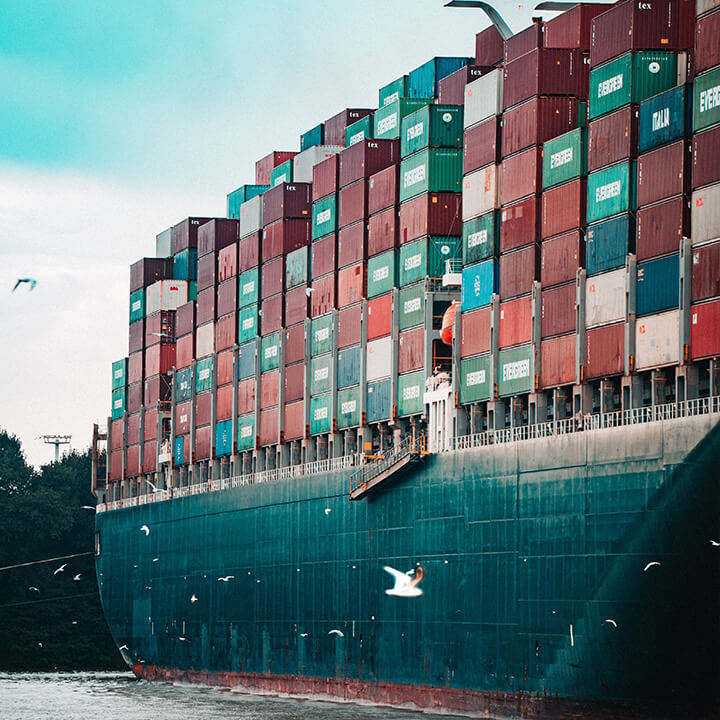Logistics Horizon Scanner: October 2024
9th October 2024
“With the government’s stated focus on transport, infrastructure and planning; and with tech and innovation improving supply chain agility and efficiency apace, the outlook for today’s logistics sector is positive and dynamic.”



Logistics
News
The government has published its consultation on proposed changes to the National Planning Policy Framework (NPPF). A draft of the proposed NPPF was published alongside the consultation, which came to an end on 24 September. The consultation states that the government will publish its response to the consultation by the end of the year, but according to Planning Resource (24 September 2024), publication of the revised NPPF “may” be delayed until the new year due to the many thousands of consultation responses received. As this Savills blog explains, the proposals signal an important shift in focus and commitment for the logistics and industrial sector. Logistics UK has responded to the consultation.
It’s no secret that the new Labour government plan to remove some of the barriers for development. One of the big headlines has been the classification of ‘grey belt’ land, unlocking a whole new set of possibilities in planning and logistics. Sign up to our event “Navigating growth: Labour’s vision for planning and logistics” here.
The Ministry of Housing, Communities & Local Government has launched a policy paper seeking views on the introduction of “Brownfield Passports” designed to facilitate and expedite development on brownfield land.
In biodiversity net gain (BNG) news, the UK government has published guidance on how to appeal to the Secretary of State if the Local Planning Authority refuse or fail to determine the biodiversity gain plan.
New planning minister Matthew Pennycock has granted permission for an energy and infrastructure development (solar farm and battery storage scheme) on green belt land after finding that the benefits, including a 136% BNG, outweighed other harms.
Savills’ July 2024 Big Shed Briefing shows that UK take-up of industrial and logistics space (units of 100,000 sq ft+) reached 16.82 million sq ft in the first half of 2024, a 44% increase when compared with the same period last year, and 13% above the long-term average.
Logistics developer Panattoni has launched a pan-European fund to invest in income-producing logistics properties and aims to raise €300 million by 2026. The fund has an open-ended, evergreen structure. It aims to acquire €600 million of assets, developed and managed by Panattoni, to include stabilised assets and forward-purchased pre-let developments.
Hellenic Shipping News (14 August 2024) has reported that cross-docking can help the supply chain and logistics industry to increase inventory and transport agility and speed, and to minimise storage time and cost, via consignment sorting at dedicated cross-docking distribution centres. See HSN’s comprehensive guide to cross-docking here.
A recent survey conducted by Reuters Events and Maersk demonstrates that, while 99% of European supply chain professionals said that they had partial or full visibility for their own inventory and warehousing, just 3% report full visibility over tier three suppliers and 17% had only partial visibility. Deeper visibility is associated with higher performing companies and a competitive advantage, enabling companies to adapt more effectively to unexpected circumstances.
In related news, Ikea is embracing inventory drones. With massive warehouses, stocked with large items, across multiple locations, Ikea now commands 100 inventory drones across 16 of its locations in Europe. The scanning drones can provide around-the-clock updates to inventory and reach vertical heights humans and most robots can’t.
“Adopting a sector-focussed approach, our lawyers from across the firm (including construction and engineering, technology, commercial and regulatory) frequently adopt a one team approach, working seamlessly to solve problems and navigate clients through the issues involved in complex factories of the future as quickly and efficiently as possible.”

On 30 July 2024, the UK transport secretary published a written statement to Parliament to launch a transport infrastructure review.
The TransiT Hub is a new national collaboration of eight universities and 67 partners across the transport, energy and digital sectors, focused on rapidly decarbonising transport in the UK. The hub will cover road, rail, air and maritime. It has already secured £46 million and will identify the lowest cost, least risky and most energy-efficient way to decarbonise transport by developing a digital twinning approach.
The Office for Rail and Road has reported that the quantity of freight moved by rail increased by 7% year on year in the quarter April-June 2024. Ellis Shelton, Senior Policy Advisor at Logistics UK said: “This increase is a demonstration of the key role that rail can play in driving growth and increased productivity across the economy.”
Wales & West Utilities and Ofgen are conducting a study exploring how hydrogen refuelling stations can be integrated into the UK’s existing gas network. The research will consider infrastructure solutions which increase the viability of hydrogen Fuel Cell Electric Vehicles as a sustainable alternative to traditional petrol and diesel vehicles. The technology offers advantages for heavy-duty vehicles which typically have high daily mileage and limited refuelling windows. The study’s insights into the economics of implementing the technology, and how it will impact consumers in a future transition, should point the way for gas distribution networks to work with hydrogen producers and refuelling infrastructure providers.
A white paper published by Aurora Innovation finds that autonomous trucking could increase energy efficiency by up to 32% relative to traditional trucking – helping the freight and logistics industry reduce emissions, meet environmental regulatory mandates, and bring down operating costs.
On 28 August 2024, the Prime Minister refused to rule out an end to the current fuel duty freeze when questioned by journalists. That raised concerns the October budget could see the cost of a litre of diesel increasing by 5p.
On 14 August 2024, the government updated its guidance about changes to the vehicle excise duty for electric vehicles rates, so that from 1 April 2025, drivers of electric and low emission cars, vans and motorcycles will need to pay vehicle tax in the same way as drivers of petrol and diesel vehicles. This change will apply to both new and existing vehicles.
XPO Logistics has launched a Female Driver Academy to encourage more women to join the industry.
New research by S-RM suggests that, despite the current geopolitical climate and recent trade disputes, conflict and supply chain disruption, only some 10% of shipping and logistics companies address geopolitical risks as part of their ESG programmes. Forthcoming corporate sustainability and due diligence reporting requirements in the UK and internationally are also a concern for operators and investors in the industry.
The EU’s Entry-Exit System (EES) will be launched on 10 November. It will require non-EU travellers to provide biometric information, such as fingerprints and facial scans, at the border, making it harder for criminals or terrorists to enter the EU using fake passports. The UK government has announced £10.5 million funding to help mitigate travel disruption at British ports, as a result. Logistics UK has published new research raising the prospect of increased food prices and the potential for shortages as a result of delays caused by EES from November 2024.
In related news, the European Travel Information and Authorisation System will be introduced from May 2025. It could see non-EU nationals having to pay a fee to enter the bloc.
The International Chamber of Commerce has published the first part of a report series looking at the role of emotion, culture and behavioural tendencies and their impact on B2B relationships.









“The consultation on the proposed reforms to the NPPF is certainly a step in the right direction. The consultation recognises that the logistics sector is “fundamental to the country’s economic growth and productivity” and acknowledges that sector depends on a national network of storage and distribution infrastructure.
“However, the importance placed on the sector in the consultation isn’t necessarily borne out in the draft NPPF, which contains scant detail of the government’s national industrial strategy.
“Much of the policy wording in the draft addresses housing supply but given the sector’s detailed input into the consultation, we’d hope to see the imbalance of the focus in the draft addressed in the revised NPPF once published.”
Alastair Robertson, Partner, Construction & Engineering